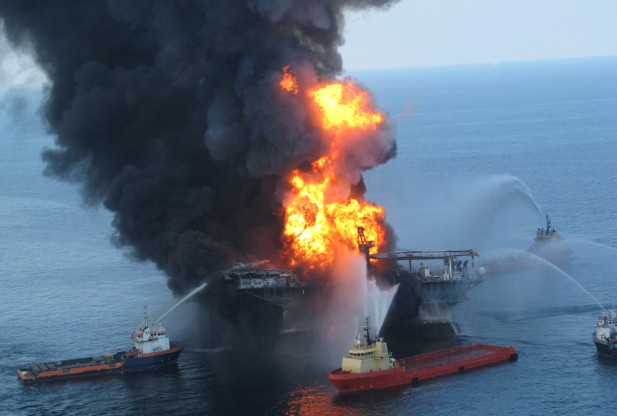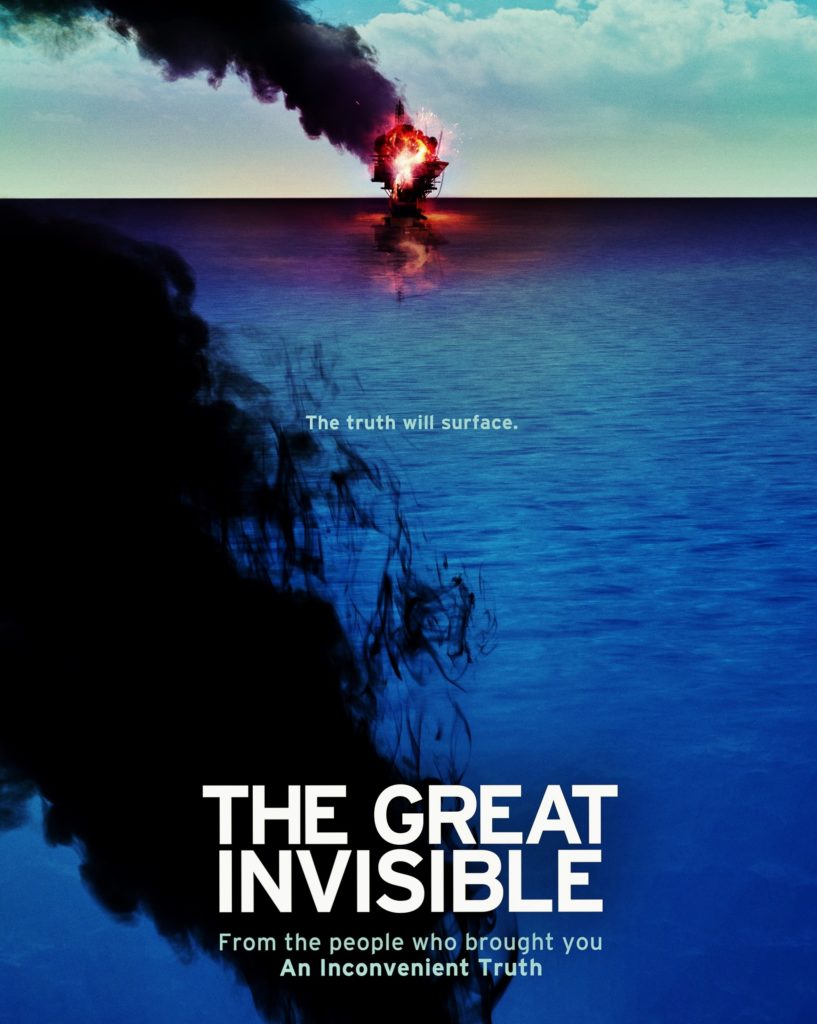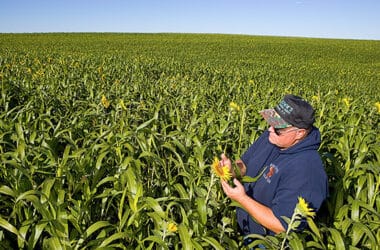The Great Invisible, the winning documentary at the South By Southwest film festival, tracks how everyone from wealthy oilmen to impoverished fishermen were affected in the Deepwater Horizon aftermath, the Transocean-owned, BP-operated oil drilling rig, that exploded 50 miles off the Louisiana coast on April 20, 2010.


Coming on four years ago, BP’s Deepwater Horizon well exploded, unleashing more than 200 million gallons of toxic crude oil into the Gulf. Combined with nearly 2 million gallons of chemical dispersant and 500,000 more tons of gaseous hydrocarbons, a mind-bending volume of pollutants were ultimately dumped into Gulf waters. By far the largest spill in U.S. history, the cumulative size of the surface slick alone was large enough to cover the entire state of Oklahoma.
httpvh://youtu.be/LDw1budbZpQ
Though the comprehensive, long-term impacts to biodiversity from the spill are still not fully understood, according to a study that came out last year, the disaster could have a lasting impact on the Gulf of Mexico. The paper suggests that the region’s deep-sea soft-sediment ecosystem could take decades to recover from the 2010 oil spill. Published by the online journal PLoS ONE, it provides comprehensive results on the spill’s effect on deep-water communities at the base of the Gulf’s food chain for the first time.
According to the researchers, the oil spill and plume covered nearly 360 square miles, with the most severe reduction of biological abundance and biodiversity occurring in a region roughly nine miles around the wellhead. Moderate effects were also observed 57 square miles around the wellhead, they added.
“The tremendous biodiversity of meiofauna in the deep-sea area of the Gulf of Mexico we studied has been reduced dramatically,” said Dr. Jeff Baguley, an expert on meiofauna (small invertebrates that live in both marine and fresh water) from the University of Nevada, Reno. “Nematode worms have become the dominant species at sites we sampled that were impacted by the oil. So though the overall number of meiofauna may not have changed much, it’s that we’ve lost the incredible biodiversity.”


The film, directed by Margaret Brown, a native of Mobile, Alabama, said in an interview with TakePart, the film’s title is “all the little things we don’t know about our consumption of oil—like the scene where we learn there’s around 3,500 oil platforms off the Gulf Coast, and some of them are connected to 20 wells each. There’s this underwater factory in the Gulf of Mexico, but we never see it. We just go to the pump, fill it up, and drive off.”
As the EPA recently lifted the ban on BP from doing business with the US federal government, and offshore drilling has moved ahead in the world oceans, with fracking off California, new drilling off Honduras, among others, what have we really learned from this horrific accident? Margaret Brown’s film hopes to remind people: we need to break this addiction to fossil fuels now.
Updated 14 July 2017









I have a problem with this movie being made. I knew 8 of the 11 that was killed cause I use to work on that rig. And still work in the oilfield now. I do not think that the family members or the co workers that got hurt wanna relieve that tragic day. Where peoples lives was lost. Let me ask u a question and think about this. What if that was your husband or a family member on the rig that day when it blew up. And they lost their lives. How would u feel if someone was making a movie about it? They wanted to bring up that tragic day in your life after u just started moving on from your lost loved one? I can tell u this is a big mistake on making this movie.
Seriously, Michael, to bring justice to their deaths, the reality of this tragedy must be uncovered and brought to the forefront of the public’s imagination. Those deaths must not be forgotten, because it is a turning point in the future of our planet. That tragic day has had implications for all of us in the world. The death of the ecosystem in the Gulf of Mexico is something I continue to mourn, and will do anything I can to make BP and its associated corporations pay for their murderous malfeasance.